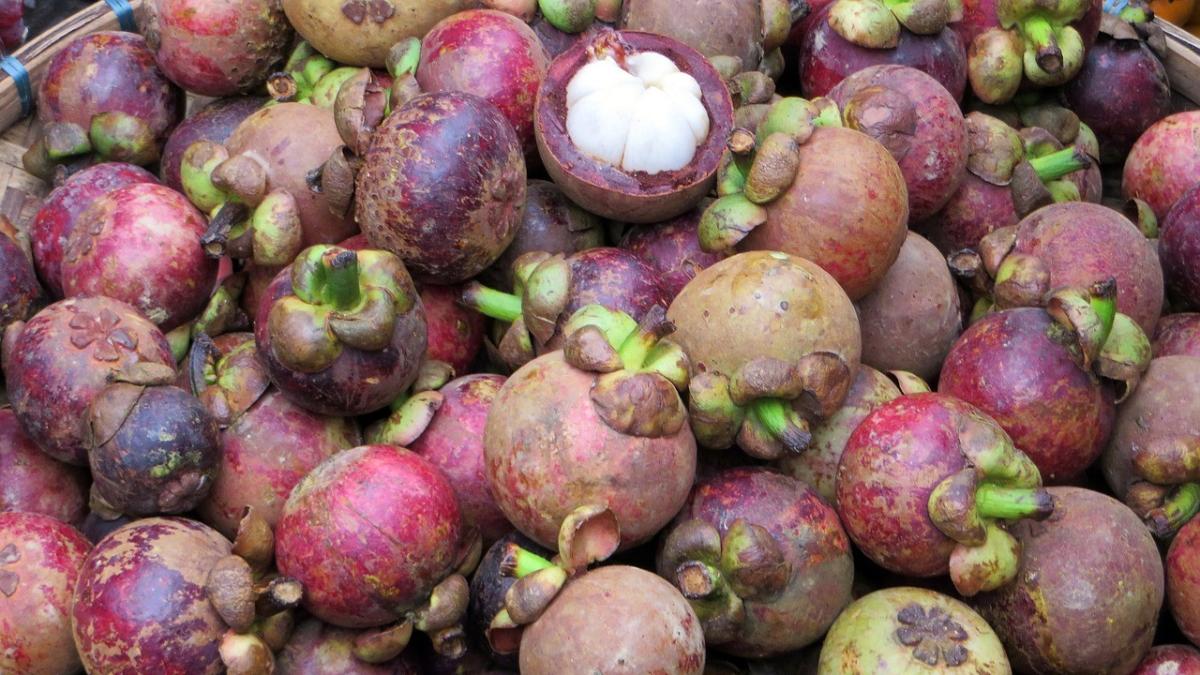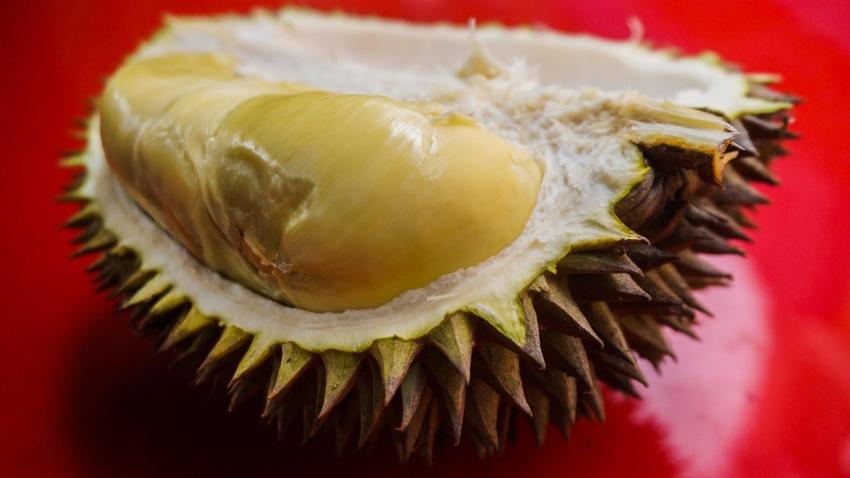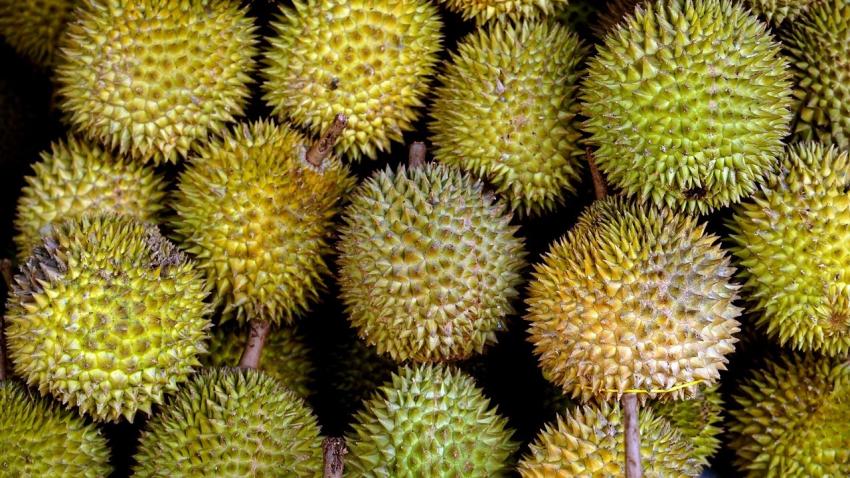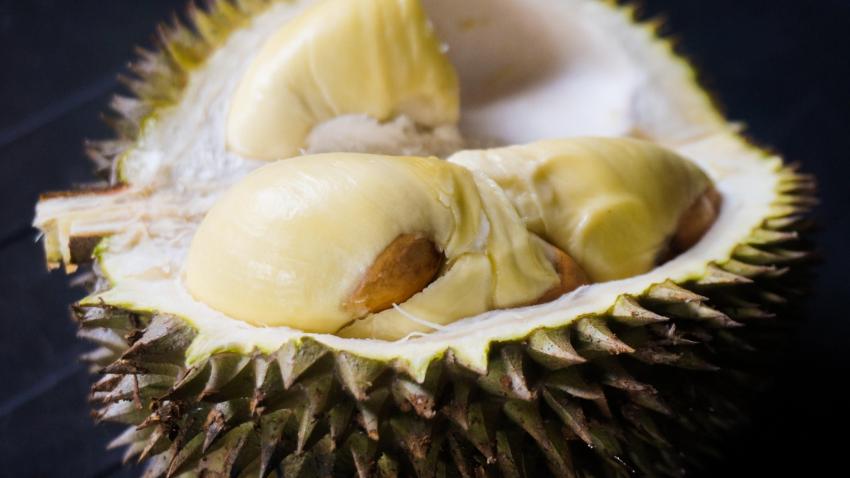You are here
Back to topThai Durian and Mangosteen Prices Slump

According to Thai media reports, durian and mangosteen prices in eastern Thailand have continued to decline. Durians are currently priced at approximately 70–80 Thai baht ($2.15–2.45) per kilogram, while mangosteens have fallen to a 10-year low of 12–14 baht ($0.37–0.43) per kilogram. A drop in the quality of early-season durians from southern Thailand has prompted Chinese importers to suspend their purchases, driving prices below 100 baht ($3.07) per kilogram. Meanwhile, the steep fall in mangosteen prices is primarily attributable to this year’s abundant harvest, with many orchard owners opting to sell their produce directly without proper grading.
Eastern Thailand’s durian season is expected to conclude by late June. Fewer exporters and packaging facilities this year has led to an early halt in durian purchases. Unstable weather conditions and heavy rainfall have resulted in lower-quality durians, prompting traders to shift their focus to the south, where the durian season is just beginning.
Meanwhile, an influx of durians from neighboring countries and a reduced number of exporters have made prices more vulnerable to variation. In eastern Thailand, farm gate prices for grade A and B durians have fallen to 70–85 baht ($2.15–2.61) per kilogram, while purchasing prices from packaging plants stand at 90–95 baht ($2.76–2.91) per kilogram. By contrast, in previous years, end-of-season prices for grade A and B durians from packaging plants ranged from 145 to 150 baht ($4.45–4.60) per kilogram. This price drop has also affected early-season durians from southern Thailand, which initially commanded 180–200 baht ($5.52–6.13) per kilogram.
The owner of a large export-oriented packaging plant in Chanthaburi province revealed that the sale of durians from eastern Thailand has been challenging this year owing to issues such as the presence of auramine O and excessive cadmium levels, as well as the recent influx of low-quality durians into the market. Some durians appear ripe but have hard flesh, poor taste and low sugar levels. Others sustain damage during transportation, rendering them unsuitable for export to China and forcing sales at a loss. Many packaging plants have incurred significant financial setbacks, with losses per container reaching 2–3 million baht ($61,300–92,000).
At roadside markets across Chanthaburi and Trat provinces, mangosteen prices plummeted by 3–5 baht ($0.09–0.15) per kilogram over just two days. On June 15, premium mangosteens were being sold at 17–18 baht ($0.52–0.55) per kilogram, mixed grades at 14–15 baht ($0.43–0.46) per kilogram and small black-skinned mangosteens at 5–7 baht ($0.15–0.21) per kilogram. By June 16, prices had dropped, with premium mangosteens priced at 12–15 baht ($0.37–0.46) per kilogram, mixed grades at 10–13 baht ($0.31–0.40) per kilogram and small black-skinned mangosteens at 4–5 baht ($0.12–0.15) per kilogram.
Mangosteen growers are calling on the government to help stabilize prices, suggesting that premium mangosteens should ideally be priced at 40–50 baht ($1.23–1.53) per kilogram, while small black-skinned mangosteens should fetch 15 baht ($0.46) per kilogram. Packaging plants have reported significant inventory backlogs and difficulties in promptly sorting and packaging mangosteens. In response, some farmers are considering a coordinated harvesting suspension lasting three or four days to push prices higher. However, the abundant supply of low-cost lychees on the Chinese market has posed challenges, making it difficult for mangosteens to command higher prices.
Duenrung Benjamas, president of the Thai Mangosteen Association, highlighted that mangosteen production in eastern Thailand is substantial, with daily output reaching 300–400 metric tons, compared with 200 metric tons per day last year. The shortage of packaging plants and inadequate logistics have contributed to the price decline. Additionally, the low prices of durians have negatively affected mangosteen prices, making a recovery unlikely.
Currently, approximately 70% of mangosteens have been harvested, with some orchards just beginning to pick their crops. Since the start of the harvest season in May, mangosteen prices peaked at 110–120 baht ($3.37–3.68) per kilogram, fell to 50–60 baht ($1.53–1.84) per kilogram by the end of May and dropped further to 12–14 baht ($0.37–0.43) per kilogram by mid-June. While the mangosteen season typically lasts until July, prices have never declined so rapidly in the past.
Industry insiders note that the issue of falling mangosteen prices is a recurring problem, often anticipated in advance. However, this year’s situation in eastern Thailand is particularly severe. Relevant authorities reportedly failed to use production data for proactive planning and were unable to address the challenges in a timely manner. It is recommended that, in the coming year, the mangosteen industry focus on improving logistical management during periods of oversupply to ensure smooth distribution to the domestic market. Additionally, farmers should be supported in using small sorting machines to separate high-quality fruits from lower-grade ones, thereby avoiding the sale of mixed-grade mangosteens. This approach could potentially increase prices by 10 baht ($0.31) per kilogram.
Image: Pixabay
This article was translated from Chinese. Read the original article.














Add new comment